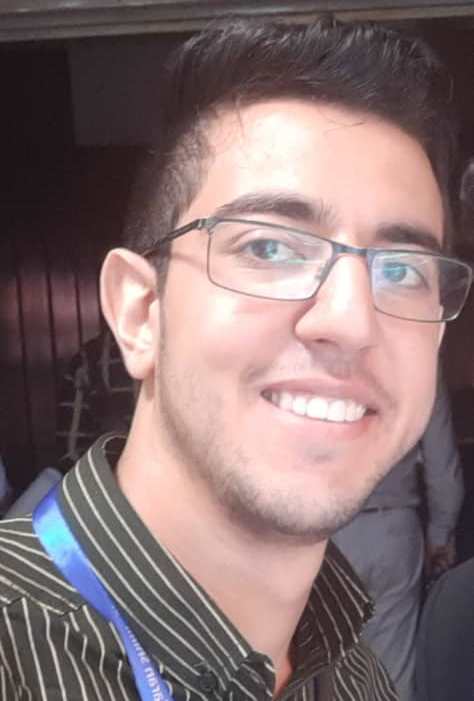Head

Dr. Ekhtiari, MD, PhD, started his research activities in cognitive sciences on topics mainly related to “decision making” in 1999 in Institute for Cognitive Sciences Studies. He also worked in the health department of Iran’s Police Force as a researcher on Drug Addiction and HIV/AIDS among vulnerable population from 2004 to 2005. He started his work in Clinical Department of INCAS in 2004. In 2005, Dr Ekhtiari began a series of activities, which ultimately led to the establishment of a new Laboratory in INCAS under the name of Psychological Assessment Laboratory (Psycho Lab), later named Neurocognitive Laboratory (NCL) subsequent to adding Neuroimaging and Brain Stimulation divisions to it. He was the NCL Director till 2010. He pursued his education with participating in several courses and programs on neuroimaging, drug abuse prevention and treatment and brain stimulation in US, as well as different European countries. He moved back to ICSS in 2010 to start a new division as Translational Neuroscience Program (TNP) as a faculty member and program director. He is back to NCL from 2014 to follow his research projects on neurocognitive basis of addictive behaviors.
He is serving now in different academic positions including:
· Board Member, Iranian Society for Cognitive Science and Technologies
· Deputy Editor in Chief, Basic and Clinical Neuroscience (Peer Reviewed English Journal)
· Chairman, Persian Journal of Addiction Medicine (Persian Journal)
· Director, Education and Human Resources Department, Cognitive Science and Technologies Council of Iran
· Board Member, Institute for Psychology and Addiction Sciences (NGO)
· Deputy Scientific Secretary, Basic and Clinical Neuroscience Congress (National Annual Congress)
· Deputy Chairman, Addiction Science Congress (National Annual Congress)
Dr. Ekhtiari is currently an associate investigator in Laureate Institute for Brain Research and a volunteer faculty member of Department of Psychiatry at University of Oklahoma
Staff
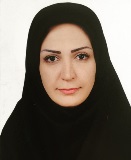
Email: nastaranmalmir@yahoo.com
Nastaran joint the neurocognitive laboratory of Iranian National Center for Addiction Studies (INCAS) in 2010. Prior to joining INCAS, she was a researcher at the Psychiatry and Psychology Research Center of Tehran University of Medical Sciences (TUMS) in Roozbeh Hospital. Nastaran has also a background in cellular and molecular biology. she is now a Ph.D. student in Psychology at Islamic Azad University Science and Research Branch. Her interests include combining neuroimaging modalities (e.g., fMRI and EEG) and non- invasive brain neurostimulators especially electrical stimulations (e.g., tDCS and tACS) to understand underlying mechanisms of human behaviors. Her currently research focuses on modulation of psychological and neural response for food craving among people with obesity using tDCS in combination with functional MRI. She also has worked on how different neural training effects on executive functions and symptoms in ADHD.
Interests: Neuroimaging Modalities (fMRI and EEG), Electrical Brain Stimulations (tDCS and tACS), Data Processing, Craving, Neurocognitive Functions
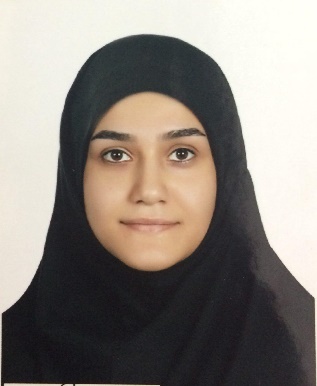
Email: h.tavakoli868@gmail.com
Hosna is now a Ph.D. student of Cognitive Neuroscience in the Institute for Cognitive Science Studies (ICSS), Tehran, Iran. Her research focus is on Transcranial Magnetic Stimulation (TMS) and its applications in addiction medicine. She has a master’s degree in electrical engineering and works in the field of artificial intelligence and machine learning as well.
Interests: TMS, Addiction, fMRI, Data Processing, Machine Learning, Programming
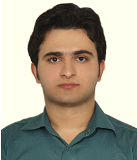
Email: peymanbiom@gmail.com
Peyman Ghobadi-Azbari is a PhD student in the Department of Biomedical Engineering at Shahed University and works on the development and integration of non-invasive transcranial brain stimulation techniques with neuroimaging approaches for use in the domain of obesity and addiction. His thesis includes the understanding of the neurocognitive mechanisms of obesity and addictive disorders, combining gyri-precise finite element head models and functional MRI for predicting behavioral and neural responses underlying tDCS, and machine learning methods to identify predictive biomarkers for the efficacy of tDCS among people with obesity and addictive disorders. His previous experience includes the development of novel 3D surgical tracker configurations and integration with cone-beam CT imaging modality for spine procedures.
Interests: fMRI, Brain Stimulation, Image Processing, Machine Learning, Food Craving, Drug Craving
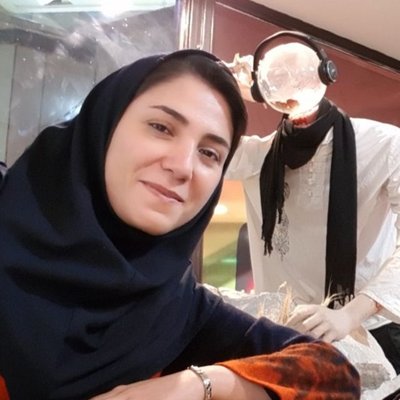
Email: gh.soleimani_70@yahoo.com
Ghazaleh is currently a Ph.D. candidate in the Department of Biomedical Engineering at Amirkabir University of Technology (Tehran Polytechnic). She received her M.Sc. in Biomedical Engineering from University of Isfahan (UI) and before that she received her B.Sc. in Electrical Engineering-Control from Isfahan University of Technology (IUT). Her main research area is the effects of electricity on human brain. In the Ph.D. program, she works on computational modeling studies of brain stimulation among people who struggle with substance abuse and addiction. She is trying to find an appropriate way to combine the computational model of the electric field with functional imaging data to predict behavioral and neural to tDCS, and to understand sources of variability in response to this stimulation.
Interests: Non-invasive Brain Simulation, Computational Head Model, Functional MRI, Drug Addiction
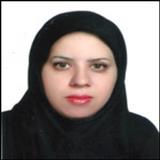
Sepideh Bakht, Ph.D
Email: sepidehbakht@gmail.com
Sepideh is now a Ph.D. student of Cognitive Psychology in the Institute for Cognitive Science Studies (ICSS), Tehran, Iran. Her research focus is on cognitive aspects and neurocognitive interventions of craving and their applications in addiction medicine. She has a master’s degree in psychology and works in the field of obesity as an addictive phenomenon as well.
Interests: Addiction, Obesity, fMRI, tACS, Neurocognitive Interventions
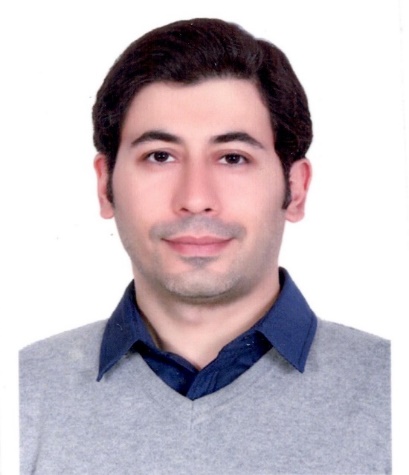
Email: soheil.zarei@gmail.com
Soheil Zarei is a PhD student in the Cognitive Neuroscience, Artificial Intelligence major at Institute for Cognitive Science Studies (ICSS). He received his Master of Technology in Software Engineering from JNTU Hyderabad university. His research interests focus on resting state functional magnetic resonance imaging (rs-fMRI) in addiction science. He is trying to find new biomarker derived from rs-fMRI data by classification and clustering methods and develop a new treatment prediction. He has experience to work with neuroimaging tools like AFNI, FSL, CONN, SPM, FreeSurfer and etc. He works in the field of data science, big data and machine learning as well.
Interests: rs-fMRI analysis, Big data, Machine learning.
Mehran Zare-Bidoky
Email: mehran7.zare@gmail.com
Mehran Zare-Bidoky is a medical student at Shahid-Sadoughi University of Medical Sciences. His research focuses on the application of fMRI to understand the underlying mechanisms of substance use disorder (SUD) and how this knowledge can inform novel treatment strategies like brain stimulation.
Mehran, under the supervision of doctor Hamed Ekhtiari, has been studying the effective connectivity changes over time among people with heroin use disorder, the effects of tDCS on functional connectivities among people with methamphetamine use disorder. He is currently contributing to Addiction Recovery Project by analyzing the stop-signal task (SST), to see how people with SUD's response-inhibition ability changes over time and how it can predict the treatment outcome.
Interests: Functional MRI, Cognitive Neuroscience, Decision Making, Addiction, Data Processing
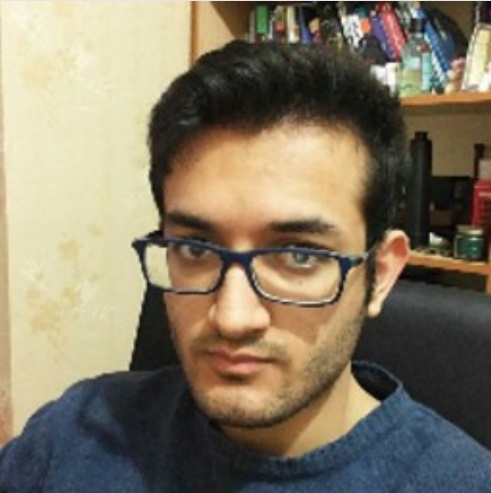
MD student in the Tehran University of Medical Sciences

Parnian Rafei has been graduated with her BSc. and MSc. degree in Clinical Psychology from the University of Tehran, Iran. She is keen on investigating the neurocognitive aspects of substance use disorders with a focus on cannabinoids and future-oriented cognition using neuroimaging techniques such as fMRI. Parnian joined the lab in early 2021 and is also serving as the executive secretary and research assistant for the Neuroscience Interest Group of the International Society of Addiction Medicine (ISAM-NIG) since January 2020. She also played a key role in developing and piloting a novel cognitive intervention titled “Cue-induced Retrieval and Reconsolidation with Episodic Foresight” (CIREF) for addiction treatment.
Interests: Neural underpinnings of addictive behaviors, fMRI, future-oriented cognition, memory reconsolidation, value-based decision making, cognitive interventions
Objectives
- Exploring neurocognitive systems involved in initiation, progression and recovery in drug use disorders using human brain mapping and computational psychiatry methods
- Implementing advanced technologies such as structural and functional neuroimaging, brain stimulation and cognitive rehabilitation to improve treatment outcome in drug use disorders
- Training a new generation of neuroscientists to design and run research projects with neurocognitive methods in drug addiction
Research Areas and Selected Key Activities
- Neuro-computational and cognitive modeling of addictive behaviors in collaboration with mathematics and engineering faculties
- Development of ecological validated instruments to assess neurocognitive aspects of drug use
- Human brain mapping of affective/appetitive response to drug cues
- Establishing individualized therapy based on human brain mapping methods
- Development of neurocognitive therapy programs
- implementing new brain stimulation techniques such as TMS and TDCS to improve treatment outcomes
-
-
Collaborating Centers
- Institute for Cognitive Science Studies
- Faculty of Computer and Electronics, Tehran University
- Department of Brain Imaging Analysis, Cellular and Molecular Imaging Research Center, Tehran University of Medical Sciences
- Faculty of Medical Engineering, Amir Kabir University of Technology
- Substance Use and Dependence Research Center, University of Social Welfare and Rehabilitation Sciences
- Faculty of Medical Engineering, Sharif University of Technology
- Cognitive Sciences and Technologies Council, Presidential Deputy of Science and Technology
- Iranian National Brain Mapping Laboratory
- Biomedical Engineering Department, City University of New York
- Department of Neuroscience and Psychology, Leibnitz Research Center for Human Factors
- Laureate Institute for Brain Research, Oklahoma
-


